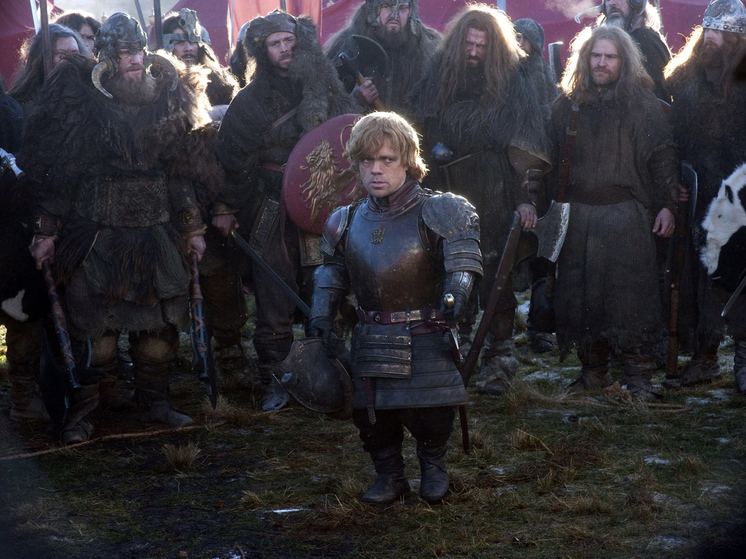People feel more close to fictional characters than to real-life companions
Recent research has shed light on how loneliness may affect the way our brains process real-life friends and fictional characters from television shows. Scientists have learned that lonely people can blur the line between the real and virtual worlds, producing a more similar neural response. Respondents chose between Game of Thrones characters and their friends.

Research published in the scientific journal Cerebral Cortex shows that, like real-life friends, fictional characters can sometimes influence people's attitudes, behavior and self-belief. Moreover, for some people, fictional characters can replace real-life friends, providing a sense of belonging as a supportive shoulder.
The study involved fans of the HBO series Game of Thrones, and they were asked to complete a task choosing 9 real-life friends/acquaintances and 9 fictional characters from the series. During the test, everything was recorded on functional magnetic resonance imaging. Each name was accompanied by a description of a character trait, such as sad, trustworthy, or smart. Participants simply had to answer “yes” or “no” to a question about whether the trait accurately described a person while the researchers monitored their brain activity.
The results suggest that lonelier people may turn to fictitious characters, and this in turn changes the way these categories are encoded in the social brain.
The prerequisite for this study was the difficult period of the COVID-19 pandemic, which limited opportunities to communicate with friends and acquaintances. People around the world have turned to television series, books and other forms of fiction to fill the void left by physical isolation. In the US alone, people reported spending an extra 30 minutes a day on personal interests such as watching TV or reading during the pandemic.
A similar trend was observed in the UK, where adults increased their daily use of streaming services by a whopping 71 percent. As subscriptions to streaming services top 1 billion during the pandemic, it's clear that interaction with fictional narratives has reached new heights.
Previous research has shown that people tend to seek a sense of social connection in mediated experiences, such as interacting with fictional characters when they feel socially rejected or lonely.
“My students and I have long been interested in how the brain perceives other people,” says study author Dylan D. Wagner. He added that “along the way, we became interested in how people feel and think about fictional characters and form so-called parasocial relationships with them. In this study, we looked for Game of Thrones superfans who were deeply committed to the series and felt close to many of the main characters.»
The study found that real-life friends showed higher neural self-other similarity than fictional characters. This suggests that individuals' neural representations of people with whom they have real-life relationships are more similar to their self-presentations compared to fictional characters.
“I was personally struck by how sharp the line was between real and relatable fictional people. For decades, psychological research has used brief descriptions of supposedly fictional other people as stand-ins for real people, but our research suggests that there is something very unique about the way the brain represents real people that should give pause when generalizing descriptions of what's in are mostly fictitious personalities,” Wagner shared the result in an interview with PsyPost.
However, the study found a significant difference in brain activity between participants who scored the highest on loneliness and those who scored the lowest. For people experiencing higher levels of loneliness, the boundaries between real and fictional characters became increasingly blurred. People, regardless of their level of loneliness, tend to form deep emotional attachments to their favorite fictional characters. These characters, which resonate with viewers on a personal level, trigger impulses in the brain that make them feel more «real» in the audience's mind.
Importantly, the blurring of boundaries between real and fictional others in the brain suggests that the findings are primarily due to the effects of loneliness on neural representations, rather than being driven solely by differences in how participants perceived the traits of real-life friends and fictional characters.< /p>
“The main takeaway is that while we may feel deeply involved in the world and characters of the shows and stories we love, the brain nevertheless categorizes real and relatable fictional people very differently,” explained Dylan D. Wagner. The professor believes that «this study offers intriguing insight into how loneliness may affect the brain's perception of fictional characters.»
However, this research may not generalize to all characters and their representation in lonely people. The fictional characters studied were from a fantasy series, which potentially influenced the results due to extreme character traits and settings. In addition, the selection process for real-life friends and fictional characters was different because real-life friends were nominated by participants, while fictional characters were selected by researchers.
“We primarily focus on the idea that among lonely people, fictional ones the characters are more like friends,” added Dylan D. Wagner, “there is some hint in the data that it could be the other way around. The fact is that for lonely people, the real people around them begin to look more like fictional characters, perhaps due to a lack of interaction with close friends and acquaintances.”
























































Свежие комментарии